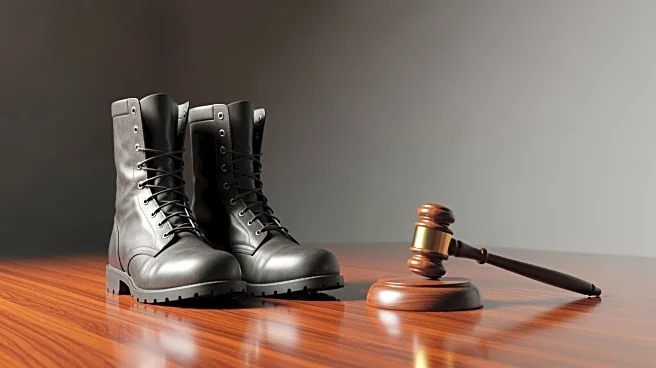What's Happening?
The Trump administration has petitioned the U.S. Supreme Court to allow the deployment of the National Guard in the Chicago area, following a temporary restraining order by U.S. District Judge April Perry.
The administration argues that the order impinges on presidential authority and endangers federal personnel. The appeal is part of a broader conflict with Democratic governors over military use on U.S. soil. The administration claims that federal officers face violence and resistance in Chicago, necessitating military support. The Supreme Court has asked Illinois to respond to the petition by Monday.
Why It's Important?
This legal battle underscores the ongoing tension between federal and state governments, particularly in Democratic-led states. The Trump administration's request to deploy the National Guard raises questions about the limits of federal power and the role of the military in domestic law enforcement. The case could have significant implications for federal-state relations and the enforcement of immigration laws. A Supreme Court decision in favor of the administration could embolden similar federal actions in other states, potentially altering the landscape of federal intervention in state matters.
What's Next?
The Supreme Court's decision on the administration's petition will be closely watched, as it could set a precedent for future federal interventions in state affairs. The outcome may influence ongoing legal battles in other states, such as California and Oregon, where similar deployments have been contested. The decision could also impact the administration's broader strategy of using federal forces to address local issues, shaping the future of federal-state relations.









